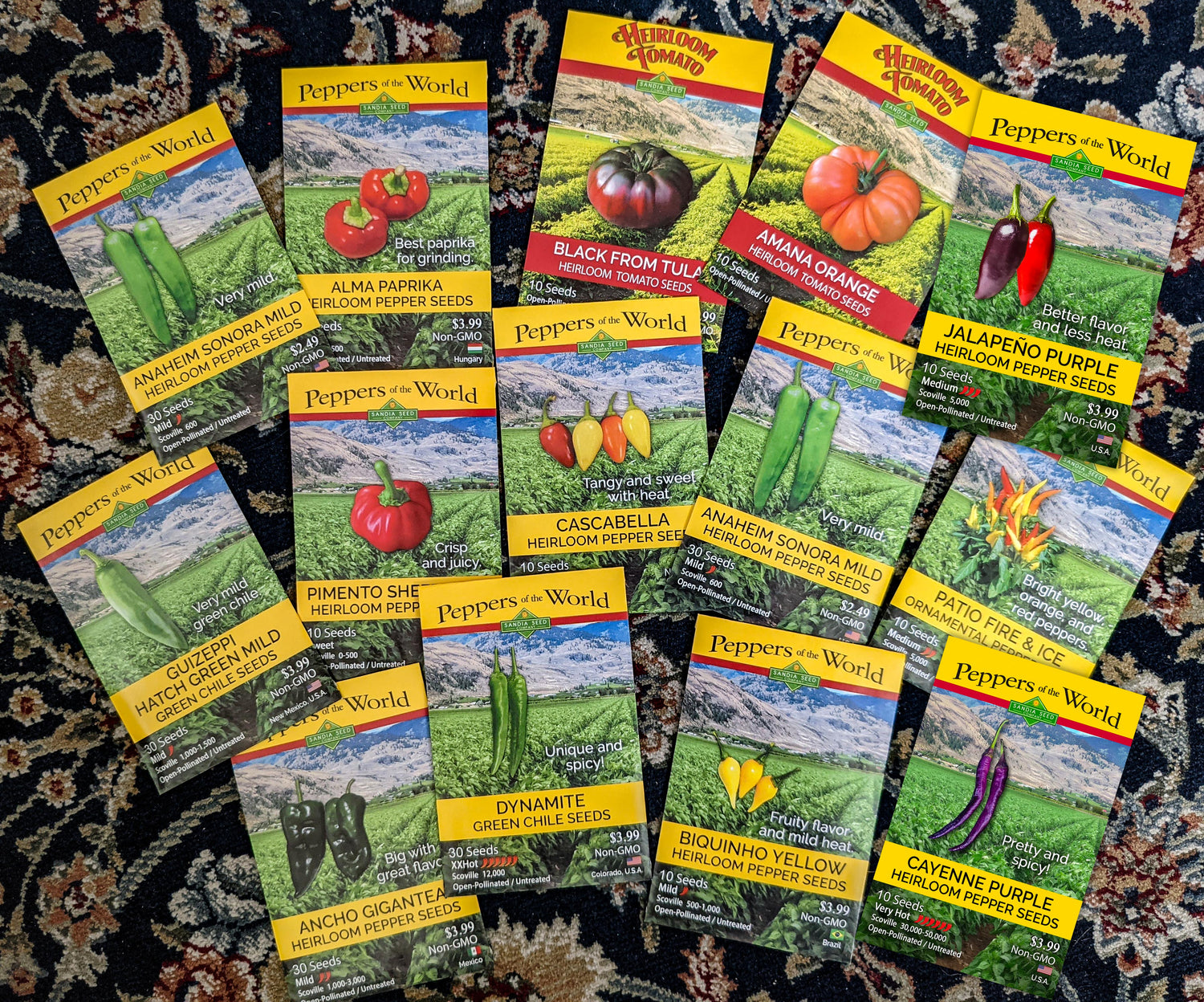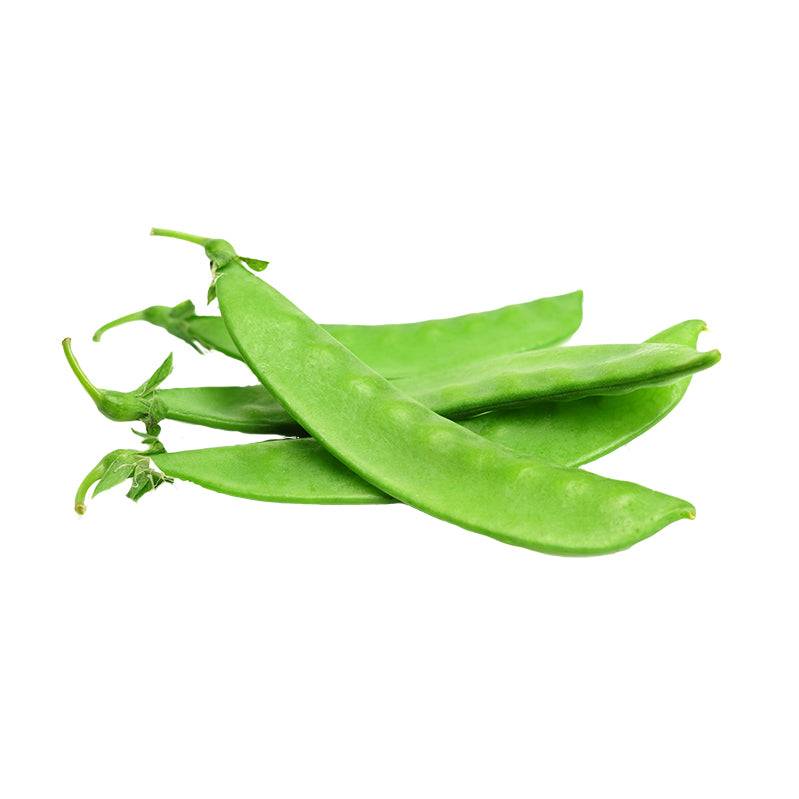
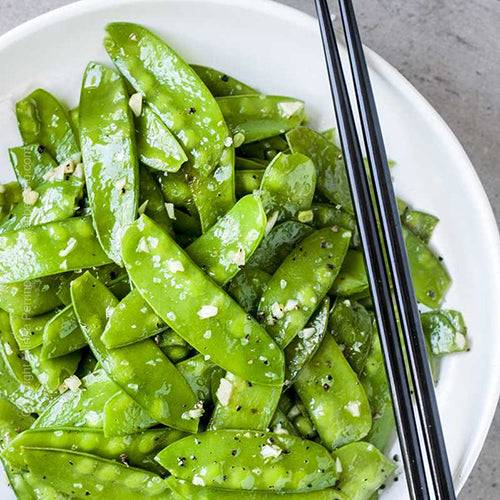
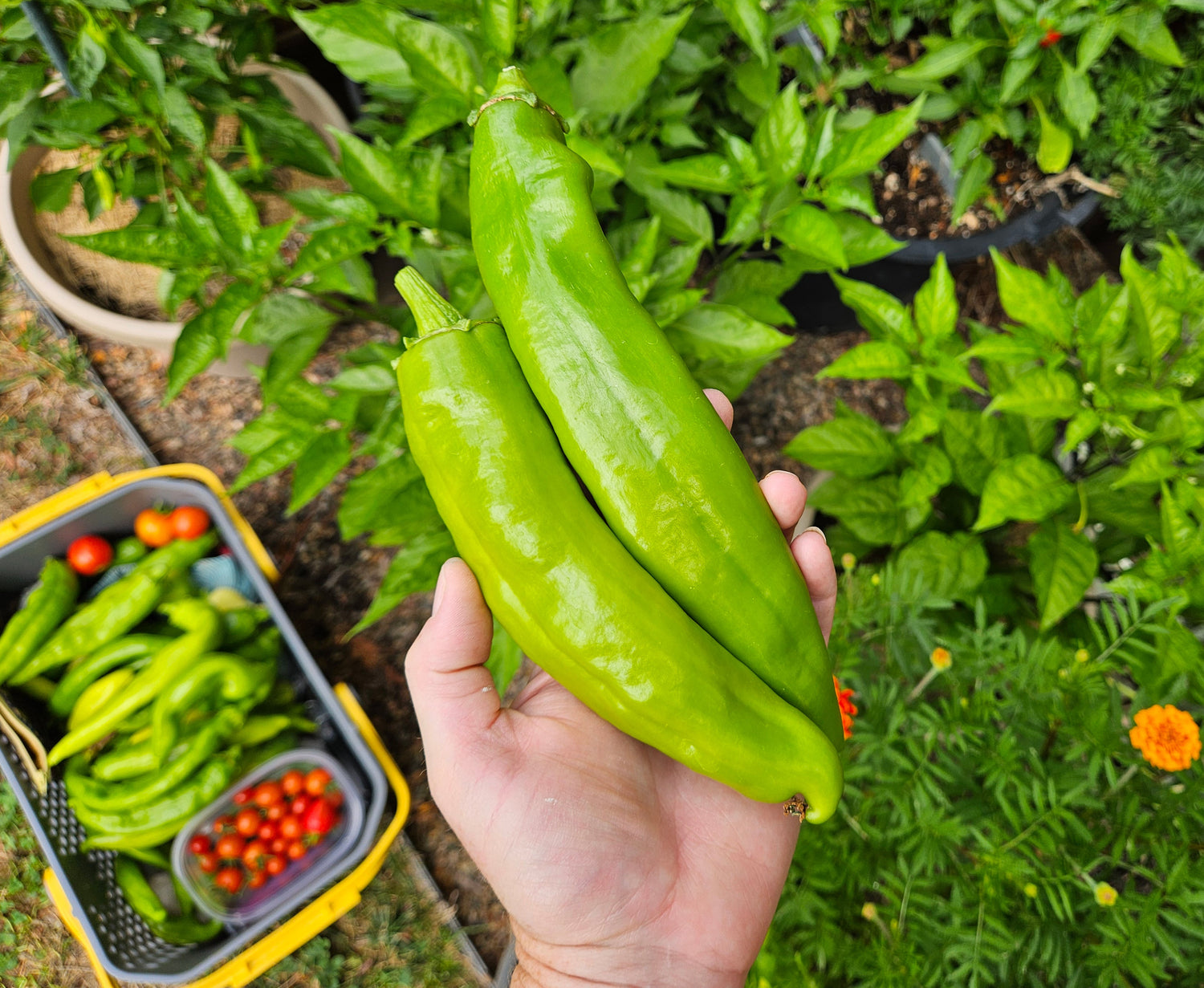
Green Chile Seeds
Discover all of the Green Chile Seeds Sandia Seed has to offer,...
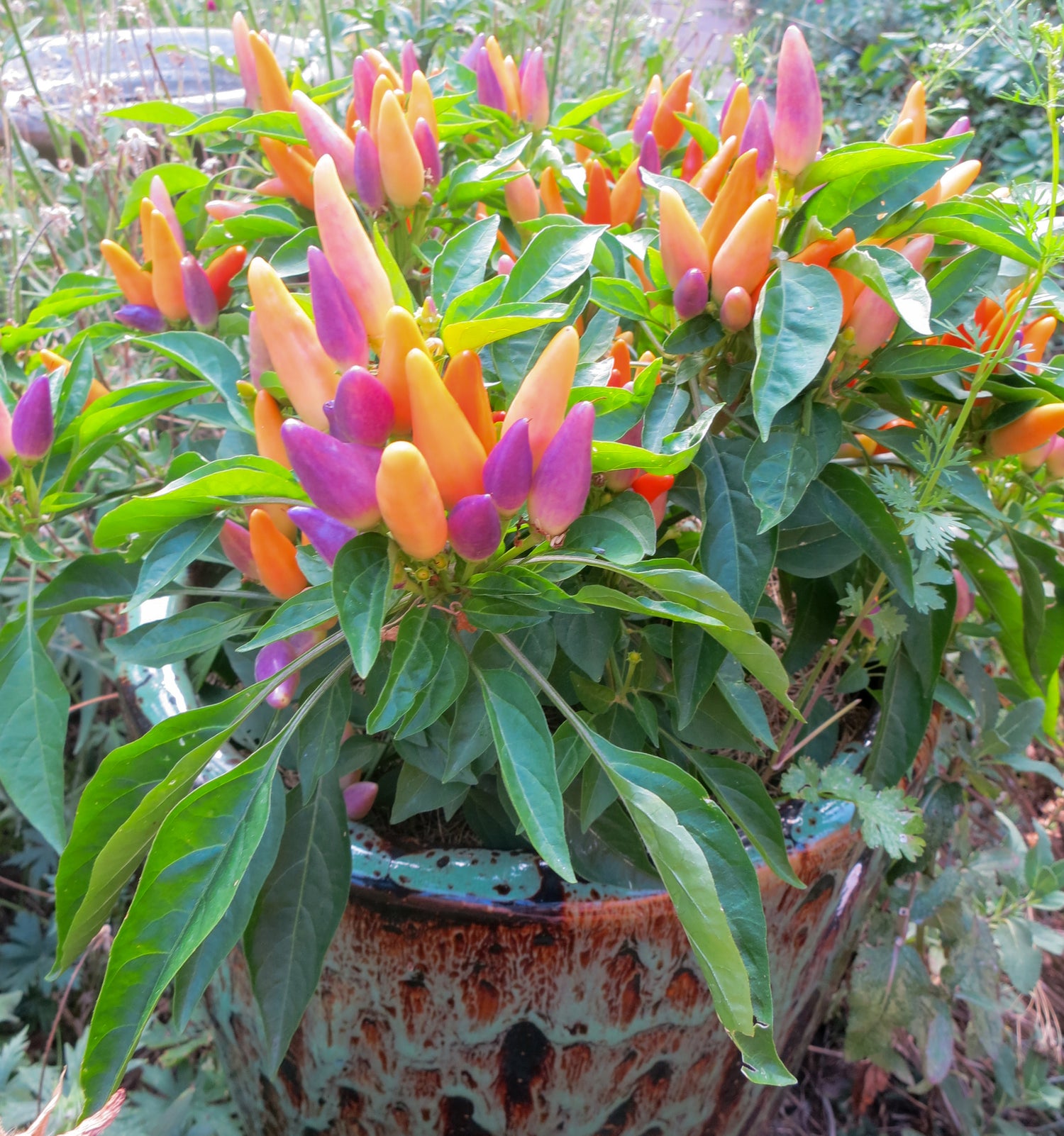
Best Peppers for Containers
If you want to grow peppers in containers, below are our top...


Sandia Seed Company
Couldn't load pickup availability
Discover the joy of growing your own Oregon Sugar Pod Pea seeds! These snow peas produce vibrant green, 4" pods that are delightfully crisp and tender, with tiny, ultra-sweet peas inside. Perfect for snacking straight from the vine, stir-fries, or fresh salads, these peas offer a homegrown flavor that far surpasses store-bought varieties.
This heirloom, non-GMO variety is a must-have for any garden. Not only are the pods delicious, but the leaves and shoots are also edible, adding a fresh pea flavor to salads and sandwiches. Rich in vitamins, these peas are as nutritious as they are tasty.
Perfect for cool climates, these frost-hardy peas thrive in early spring or late summer for a fall harvest. Plant seeds 1" deep and 8" apart, and watch them sprout in just 5-10 days. With 3' vines, they grow quickly and benefit from trellising for easy picking. Plus, as legumes, they naturally enrich your soil with nitrogen, making them a sustainable choice for your garden.
Each packet contains 25 seeds, enough to plant a 12' row. Keep the soil cool with mulch, provide partial shade, and enjoy a continuous harvest by picking young pods regularly. Whether you're a beginner or an experienced gardener, Oregon Sugar Pod Peas are a rewarding and productive addition to your garden.
Start growing your own crisp, sweet snow peas today. Order your seeds now!



Hot Sauces are made from lots of ingredients beyond just hot peppers! Many recipes include fruit, juice (lime, lemon), different types of vinegar, ginger, mustard seeds, carrots, garlic, onions and...
Hot Sauces are made from lots of ingredients beyond just hot peppers! Many recipes include fruit, juice (lime, lemon), different types of vinegar, ginger, mustard seeds, carrots, garlic, onions and...

At Sandia Seed we LOVE peppers, and we enjoy helping people grow their own peppers from seed! We think some of the best peppers for beginners to grow are the fastest...
At Sandia Seed we LOVE peppers, and we enjoy helping people grow their own peppers from seed! We think some of the best peppers for beginners to grow are the fastest...

Wondering what to plant with your chile peppers to help them thrive? Here are all of our recommendations including flowers, chives, carrots, radishes, squash, basil, parsley, dill, marjoram, oregano, rosemary,...
Wondering what to plant with your chile peppers to help them thrive? Here are all of our recommendations including flowers, chives, carrots, radishes, squash, basil, parsley, dill, marjoram, oregano, rosemary,...


Discover all of the Green Chile Seeds Sandia Seed has to offer,...

If you want to grow peppers in containers, below are our top...
So, as a life long BOC fan and an avid gardener who loves the quality of seeds I’ve always received from Sandia Seeds. I just had to have this shirt. It rocks! I ordered a couple more for some fellow BOC fans as well. Great quality and the graphic is outstanding!
I'm going to grow these every year, they are HOT!! They make great poppers and salsa. Very productive, easy to grow, quick germination and fast growing plants. Thank you for the stellar seeds.
I planted several cultivars from wholesale seed. These were prolific. See all that RED (and green)?!? Looking forward to harvesting in a few days. Thank You Sandia Seed!
I pretty much use Sandia seeds exclusively! A few years ago I just happened to order your Jalapeño M. To me it's the perfect Jalapeño! Really nice size! Perfect heat for what we like! Wonderful flavor with a meatyness that's perfect for many different uses! I make my own Sriracha so I wait for them to turn red. They're one of my base peppers for my sauce! I praise them to all my personal friends and to members of groups that I belong to!
Plants each produced dozens of beautiful peppers. Still going strong in October in Virginia
Serrano Hidalgo Seeds fromSandia Seed produce even in the HOT drought of central Illinois this year! I love adding a little Mexican kick to my salsa but also tossing these on the grill! They have great flavor and produce all summer long!
Quintessence of pepper flavor. Productive plant. Definitely will grow again.
I had looked high & low, and searched the web with many word combinations ‘looking’ specifically for my favorite chili, the Dynamite xx Hot… so I could grow my own. The peppers were sold in Colorado at select places during roasting season, but you couldn’t buy seeds for them… anywhere!
Finally, as luck and persistence would have it, I discovered Sandia Seed Company.
Thank you Sandia! I planted them and had a great crop this year. I plan on growing them every year as well as trying some of their other seeds,
There's just something fun about growing a jalapeno that is light enough in color that some people think it's a banana pepper. LOL! I picked these just for color variety, and I'm very pleased that my plants have been loaded with them all season! We donated about 50 lbs of mixed peppers this year from our garden and I still had enough to freeze some and can more jars of recipes than we'll probably be able to use before next season. All my peppers were from Sandia Seed Company. I've never had such great pepper production before using these seeds!!
Excellent peppers, large and meaty. Easy to grow from your seeds.
This spinach germinated well, and produced way more spinach than I'd initially expected. It grew really well, was slow to bolt in the summer, and has a really nice mild flavor for salads or steamed.
Love this Hatch variety chili, next best thing to living in New Mexico! Yep, they grow in Oklahoma too!
This was my first time growing these and I will definitely be growing them from now on. Great germination and very sturdy plants that have withstood some really high winds. Huge long peppers that are excellent green or red, very easy to peel skin.
Growing these in Florida, (Recent transplant of NM).
Lovely peppers. Took a couple weeks is all and wow! I have several budding; 2 large enough to nickname. They're still in their infancy, but I can tell they are going to be great! Love the seeds!
Prudens purple was huge, productive, and delicious. Very crack resistant. Amazing!
Get our emails to hear about new seeds, growing tips, discount codes & contests:

